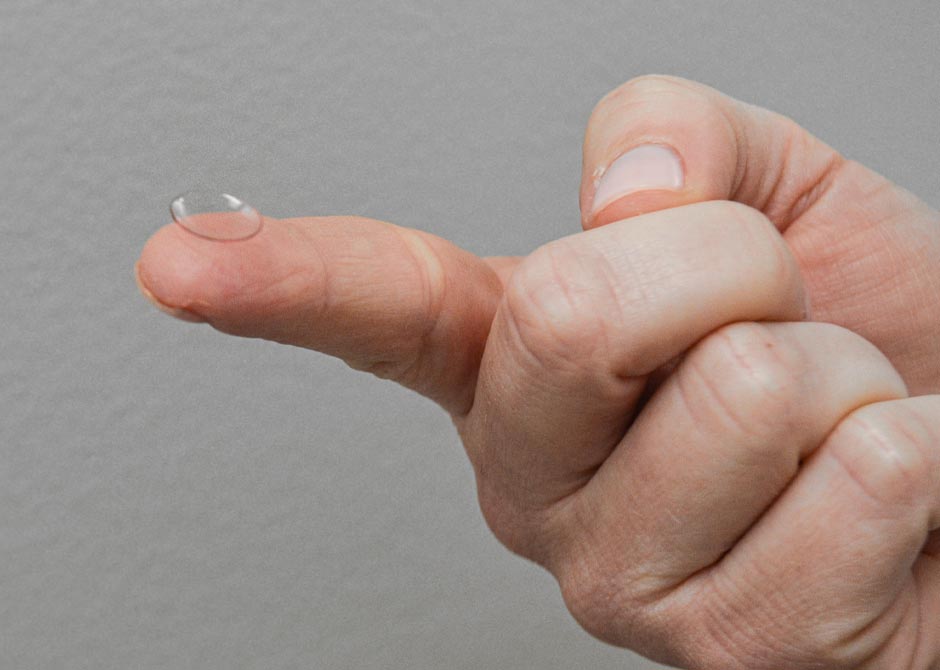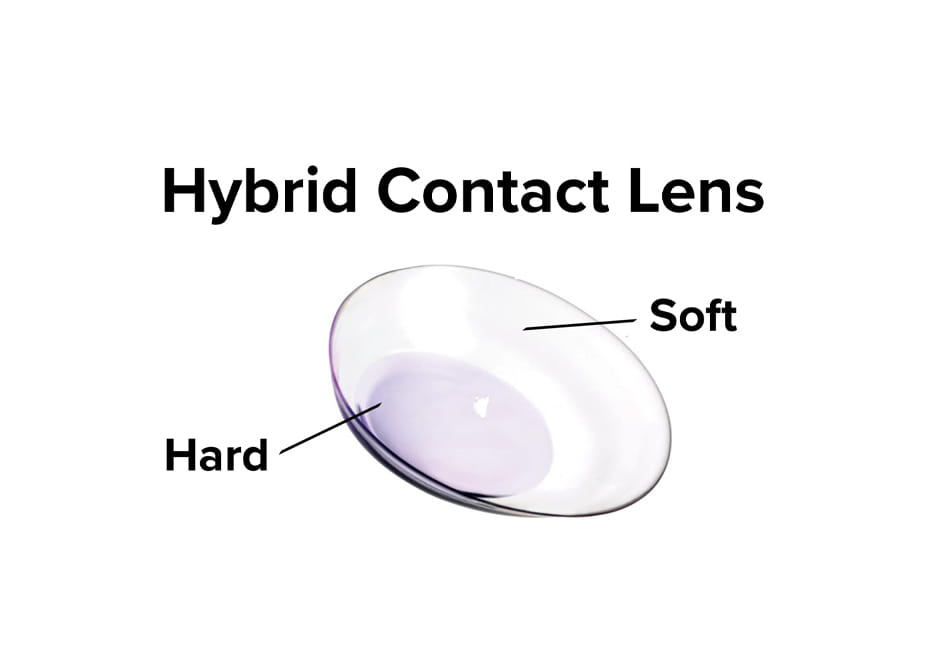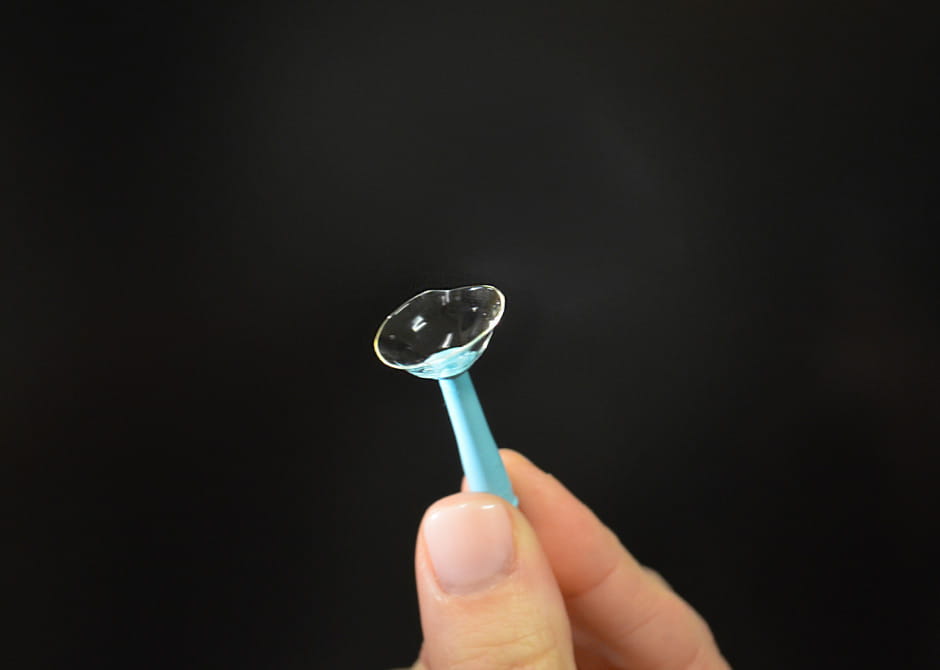Specialty medical contact lenses may provide improved vision and improvement of symptoms if you have a history of medical-related eye conditions such as keratoconus, corneal scarring, corneal transplant, refractive surgery, corneal ectasia, dry eye disease, ocular graft versus host disease (GVHD) and Stevens-Johnson syndrome (SJS).
Contact lens types
There are a number of specialty contact lenses that are used for specific conditions where a higher level of customization and personalization is required for improved vision and/or symptom control.
Custom soft contact lenses
Custom soft contact lenses are lenses designed for your eye in any prescription, with varying sizes and curvatures. You may need custom soft lenses if your prescription isn’t standard or if your eye shape or eye condition doesn’t allow standard lenses to fit your eye properly.
Good candidates for custom soft lenses include patients with high prescriptions, astigmatism and presbyopia. They can occasionally be used for keratoconus or other eye conditions.
Rigid gas permeable (RGP) contact lenses
 Rigid gas-permeable (RGP) lenses, also called “hard contacts,” are contact lenses that are custom-designed for your eye and made of a “hard” plastic that transmits oxygen. Conventional RGP lenses are smaller in size than soft contact lenses and rest entirely on the cornea.
Rigid gas-permeable (RGP) lenses, also called “hard contacts,” are contact lenses that are custom-designed for your eye and made of a “hard” plastic that transmits oxygen. Conventional RGP lenses are smaller in size than soft contact lenses and rest entirely on the cornea. - RGP contact lenses work well for patients with eye conditions where standard soft contact lenses or glasses can’t improve vision to the expected level. These conditions include keratoconus, corneal scarring, corneal transplants and corneal ectasia. RGP lenses can also be prescribed for patients with high prescriptions, astigmatism and presbyopia.
Prosthetic colored soft lens
- Prosthetic colored soft lenses are lenses that recreate the look of a natural iris to improve cosmetic appearance and/or block out light entering the eye
- Prosthetic lenses are used for patients who have had eye trauma resulting in loss of their iris or corneal scarring

Hybrid contact lens
- Hybrid lenses are a combination of a hard (RGP) lens in the center connected to a soft contact lens edge. This allows for improved vision from the RGP lens and similar comfort to a soft contact lens
- Hybrid lenses can be prescribed for patients with high prescriptions and various eye conditions such as keratoconus and irregular corneas
Scleral lens

- Scleral lenses are larger lenses made from a gas permeable material that rest their weight on the white of the eye. This allows for improved vision and comfort as the lens vaults over the cornea.
- Scleral lenses are filled with a preservative-free saline prior to applying the lens that creates a liquid barrier between the lens and the eye, allowing for improved comfort while wearing the lens
- Scleral lenses don’t move around on the eye, dislodge or pop out during wear time when applied correctly
- Scleral lenses are typically used for medical eye conditions including keratoconus and ocular surface disease. These lenses may be a good option when small gas permeable (RGP lenses) have not provided improved vision or comfort
- To learn more about conditions that can be treated with scleral lenses and types of scleral lenses, visit the Advanced Specialty Contact Lens Clinic

